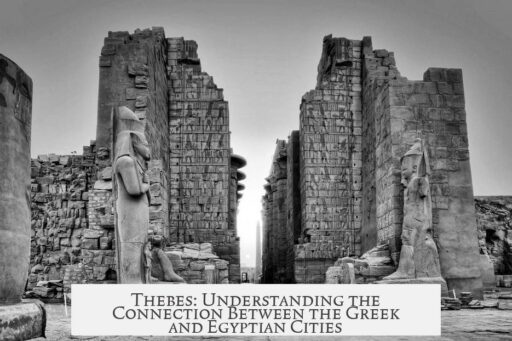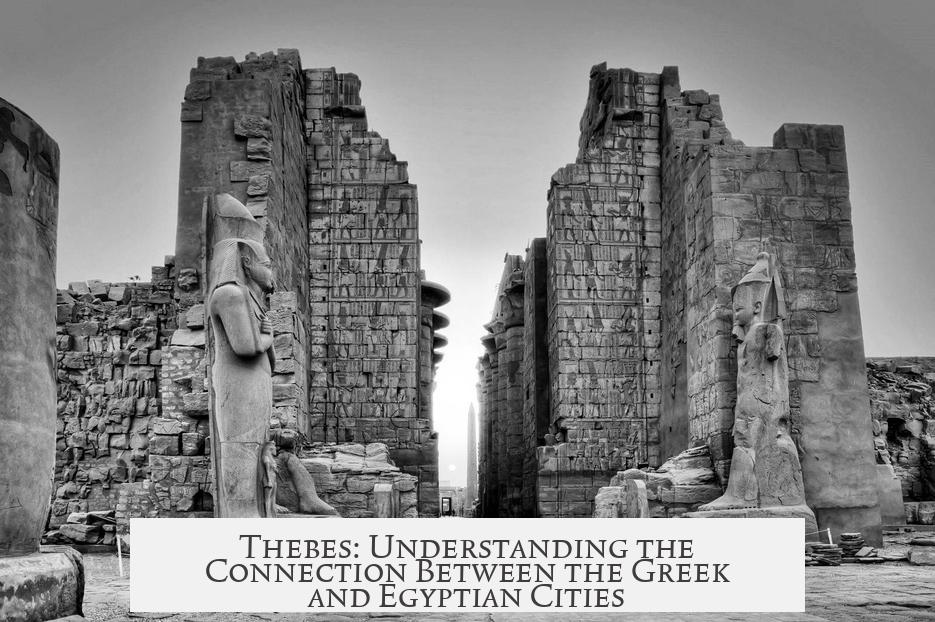The cities named Thebes in Greece and Egypt share their names purely by coincidence, arising independently with no historical or linguistic connection at the time each city was named. The Greek Thebes, one of the oldest cities in Greece, holds significant ancient status, often cited by Homer as a symbol of great antiquity. Meanwhile, the Egyptian Thebes had an original Egyptian name, Waset, with related temple complexes called ta-opet or ta-pet, which influenced how the Greeks later adapted its name.
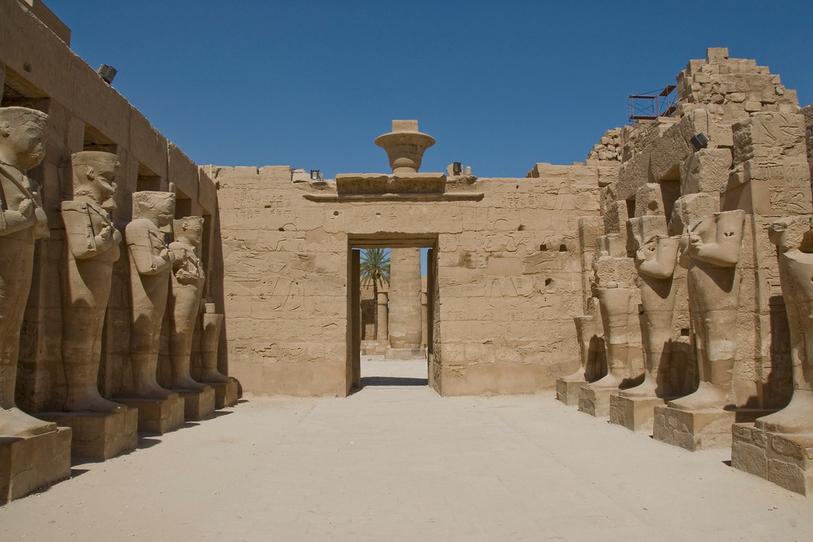
Greek contact with Egypt began during the Archaic Period, long after both cities were established. During this period, Greeks encountered the Egyptian city’s temple complex named ta-opet. They linguistically assimilated the term into Greek as “Thebai,” closely aligning it with their own city named Thebes. This adaptation resulted from phonetic similarity and the Greeks’ tendency to map foreign places into familiar terms.
Egyptian Thebes held immense religious importance as the center of the Cult of Amun. In Egyptian texts, it appeared as “nwt-imn,” meaning City of Amun. Recognizing Amun’s divine power, Greeks equated Amun with Zeus and thus called the city “Diospolis,” or City of Zeus. This renaming reflects a broader cultural and religious syncretism rather than the original naming origin.
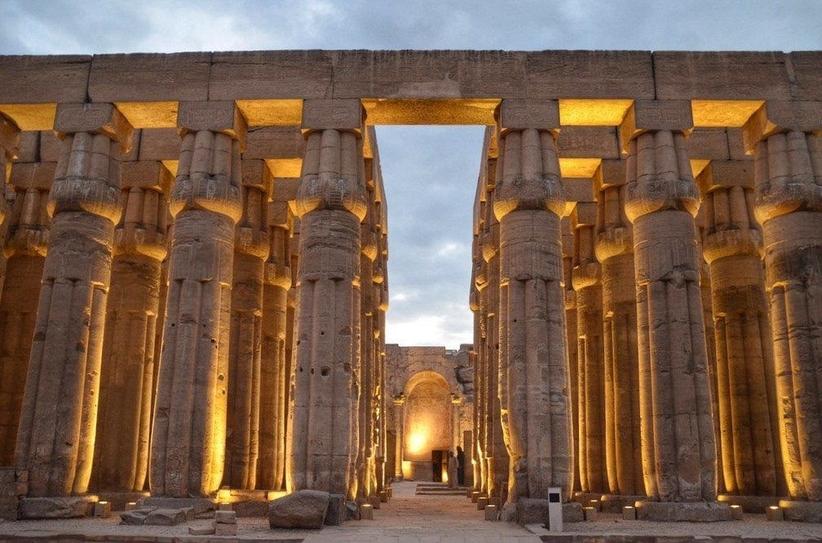
| City | Original Name | Timeframe | Meaning or Significance | Greek Adaptation |
|---|---|---|---|---|
| Boeotian Thebes (Greece) | Thebes (Thebai) | Ancient Greece, pre-Mycenaean | Ancient citadel, old city referenced by Homer | Original name, no change |
| Egyptian Thebes | Waset, ta-opet (temple) | Predynastic to New Kingdom Egypt | Religious center, Cult of Amun seat | Thebai (from ta-opet), Diospolis |
In brief, the city names’ similarity lies in Greek-language adaptations during later contact with Egypt and separate original origins. The Greek city’s name predates Egyptian-Greek interaction, while the Egyptian Thebes’ Greek name results from linguistic assimilation and religious interpretations.
- Thebes in Greece and Egypt have unrelated original names and origins.
- Greek Thebes is a very ancient city, dating back to early Greek civilization.
- Egyptian Thebes was originally named Waset; “Thebes” derives from Greek adaptation of local words.
- Greek contact with Egypt shaped naming, blending ta-opet to Thebai.
- Religious significance led Greeks to call Egyptian Thebes “Diospolis,” linking Amun with Zeus.
Why Is There a City Named Thebes in Greece and Another Identically Named City in Egypt?
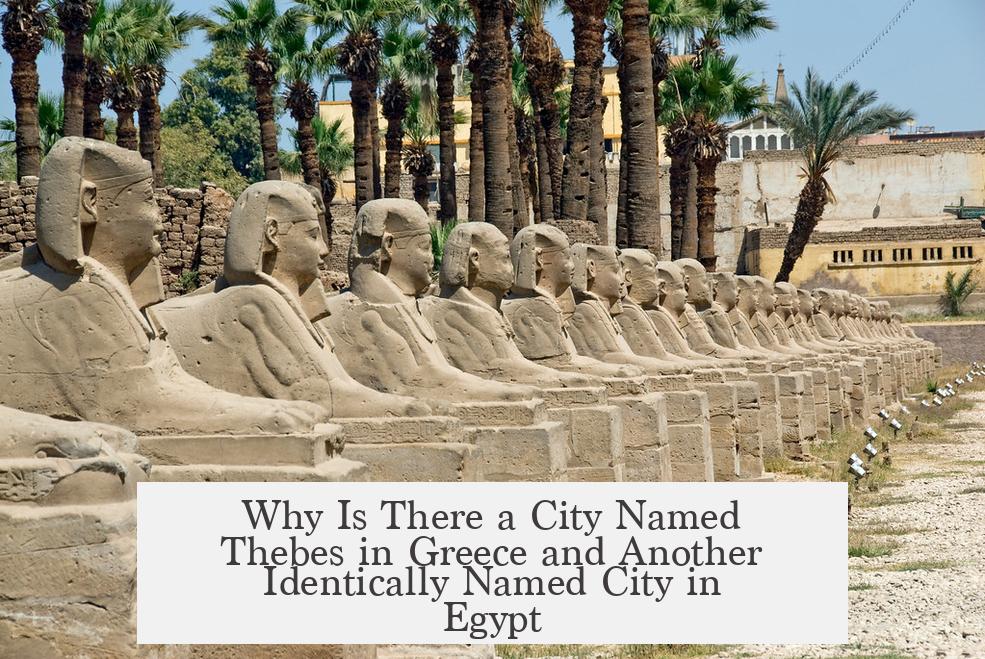
Short answer: It’s a fascinating cosmic coincidence, not a case of one borrowing from the other. Two ancient cities, separated by thousands of miles and distinct cultures, share the name Thebes for totally unrelated reasons. But there’s more to the story than meets the eye.
Let’s embark on a journey that untangles this naming mystery, diving into history, language, culture, and even a little ancient linguistics with a dash of cultural blending. Ready? Let’s go!
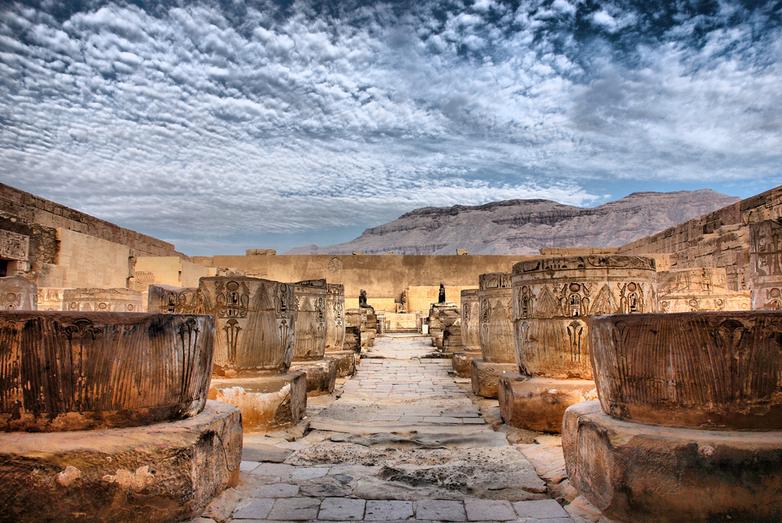
The Tale Begins: Pure Coincidence of Names
First things first — the names of Thebes in Greece and Thebes in Egypt simply aren’t connected at their origins. Both cities were named long before the Egyptians and Greeks had substantial contact or cultural exchange.
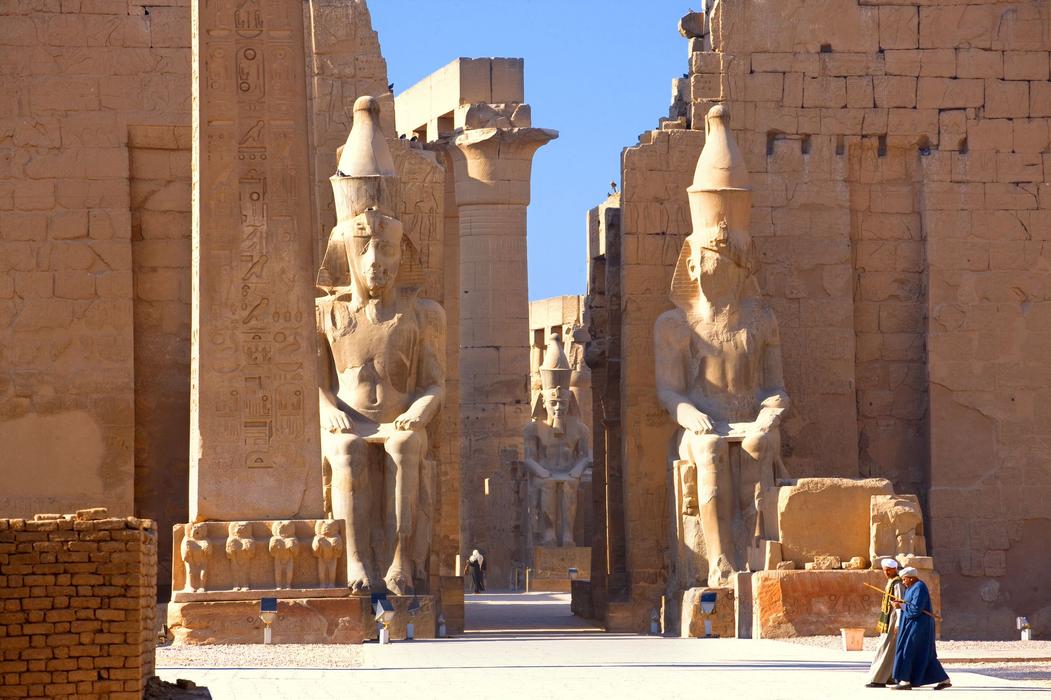
Imagine two kids in different playgrounds inventing the same nickname for their favorite toy. That’s basically what happened with these cities’ names. The similarity popped up independently, with no one copying the other.
So, if you were expecting a grand ancient trade deal or secret correspondence leading to shared city names, spoiler alert: it didn’t happen.
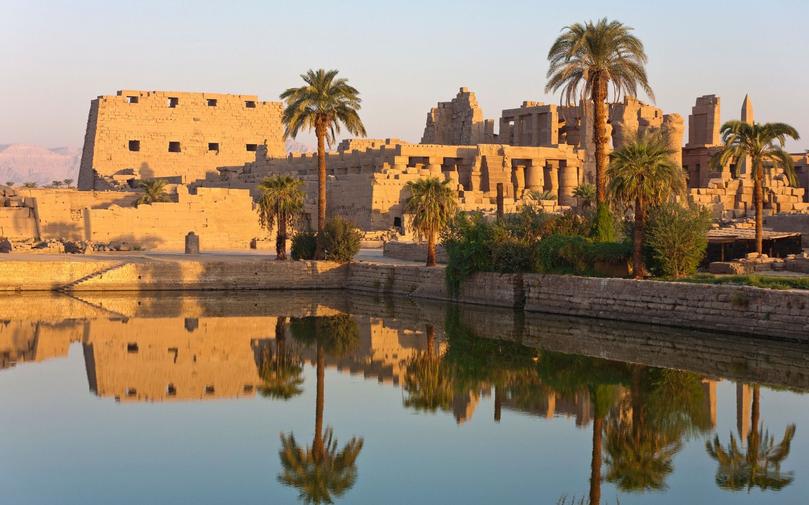
Unpacking the Origins and Ages of These Ancient Giants
Let’s look at each city’s backstory to understand their names better.
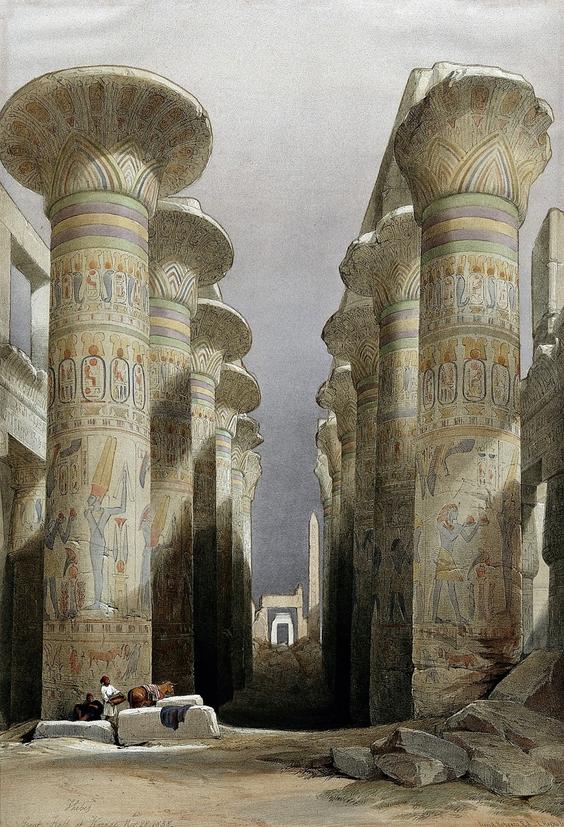
Boeotian Thebes, Greece — The Very Old One
Greek Thebes, nestled in central Greece, boasts an age that Homer, the ancient poet, used as a yardstick for antiquity itself. When Homer talks about something being older than Thebes, that means something truly ancient — like way before the dawn of history.
It’s not just old; it has mythic weight. Tales of Oedipus and the Seven Against Thebes anchor the city as a place wrapped in legend. Homer’s reckoning gives it a special status as a cultural and historical landmark.
Egyptian Thebes — Known Locally as Waset
Flip over to the Nile, and the name “Thebes” doesn’t come from local Egyptian language directly. The ancient Egyptians called this city “Waset.” Nearby, the grand temple complex at Karnak was called “ta-opet.”
Over time, the name morphed linguistically and took forms like “ta-pet” in Demotic script. When the Greeks came into contact with Egypt, they didn’t simply translate “Waset” but picked up on “ta-opet” to craft their own name for the city.
How Did the Greeks Appropriately Name Egyptian Thebes?
Now we get to linguistic fun: the Greeks encountered “ta-opet” (the temple complex) and turned it into “Thebai.” Here’s the twist — this Greek name probably wasn’t random. The Greeks had their own Thebes, so the similar sound made a neat fit!
This wasn’t just a random phonetic stumbling block. The process is called linguistic assimilation, where a foreign word is bent to fit familiar sounds or concepts.
Imagine you’re learning a new language, but some words sound oddly like your hometown’s name. Wouldn’t you laugh and adopt it as something familiar? That’s exactly what happened for the Greeks.
More Names, More Meaning: The Religious Weight of Egyptian Thebes
Egyptian Thebes didn’t just sit around under one name. It was the bustling heart of worship for the god Amun, earning it titles like “City of Amun” or “nwt-imn” in Egyptian tongues.
The Greeks, ever the syncretists, associated Amun with their chief god Zeus. So, they dubbed the city “Diospolis” — literally “City of Zeus.” The name stuck alongside “Thebai” and reflected the deep intercultural mix where religion influenced city identity.
This layering of names highlights how contact between cultures isn’t just about borrowing names. It’s about blending beliefs, languages, and identities to create shared meanings — even if the original names were purely accidental matches.
What Does This Mean for You, the Curious Reader?
Understanding why two ancient cities share the name Thebes teaches us a few handy lessons:
- Names Don’t Always Link Histories. Just because two places share a name doesn’t mean they share origins.
- Language Shapes Perception. The Greek transformation of Egyptian names shows how contact changes how places are known and understood.
- Cultural Exchange Is Complex. Religious ideas travel and transform city identities more than just trade or conquest.
Think about modern analogies. Ever met someone with your name but totally different background? Same idea.
Want to Spot Similar Naming Coincidences?
It’s surprisingly common around the world. Many places share names by pure chance. Not every Springfield or Alexandria points to one ancestor town.
This tale also reminds us how a simple name can carry layers — from pure coincidence to deep cultural conversations written into history’s fabric.
In Conclusion: Thebes, Two Cities, Two Stories
Why is there a city named Thebes in Greece and a city with the exact same name in Egypt? Because two great civilizations, vast and ancient, named their cities independently. The Greek Thebes shines as one of Greece’s oldest cultural pearls. Egyptian Thebes, called Waset by locals, gets its Greek name through linguistic twist and cultural blending during early Greek-Egyptian contact periods.
So next time you hear “Thebes,” think beyond names — imagine the rich history, cultural exchanges, and all the human quirks making ancient cities come alive in entirely unique ways.
Curious what other ancient city name mysteries hide in plain sight? Stick around, the past always has stories itching to be told!
